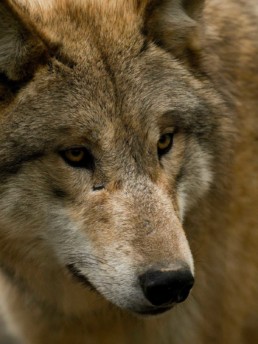Wat Dieren Gelukkig Maakt
Ecologisch bewustzijn en conflictbeheersing: de Vlaamse weg naar samenleven met wolven
In Vlaanderen wordt de terugkeer en groei van wolvenpopulaties effectief beheerd door een doordachte aanpak die ecologisch bewustzijn combineert met effectieve conflictbeheersing.
Uitdagingen en oplossingen
– Initiële weerstand:
– Zorgen over veiligheid en mogelijke conflicten
– Geleidelijke acceptatie door educatie en betrokkenheid
– Preventieve maatregelen:
– Implementatie van wolfbestendige hekken
– Voortdurende betrokkenheid van lokale gemeenschappen
Positieve resultaten
Deze aanpak heeft geleid tot:
– Vermindering van predatiegevallen
– Bevordering van een gevoel van samenleven
– Verschuiving naar acceptatie van wolven
Ecologische voordelen
De terugkeer van wolven wordt nu gezien als een kans om:
– Biodiversiteitsbehoud te versterken
– Evenwichtige ecosystemen te behouden
Ondanks de blijvende uitdagingen, toont Vlaanderen aan dat een harmonieuze coëxistentie tussen mens en wolf mogelijk is door middel van zorgvuldige planning, educatie en gemeenschapsbetrokkenheid.
4 Dieren
4 Wolven
__
Volgens recente schattingen leven er momenteel ongeveer 4 Vlaamse wolven in Vlaanderen.[1]
Vlaanderens wolvenbeheer: een evenwicht tussen soortenbehoud en maatschappelijke acceptatie
De afgelopen jaren heeft Europa een opmerkelijke toename in de wolvenpopulatie gezien, met ongeveer 20.000 wolven verspreid over 23 EU-lidstaten. Vlaanderen maakt deel uit van deze trend, met een kleine maar groeiende populatie van ongeveer 4 wolven sinds 2011, voornamelijk in Limburg.
Beschermingsstatus en uitdagingen
Ondanks initiële bezorgdheid over de impact op vee en potentiële conflicten met landbouwers en jagers, geniet de wolf bescherming op verschillende niveaus:
– Internationaal: Bern Conventie
– Europees: Habitatrichtlijn
– Regionaal: Vlaamse soortenbehoudswetgeving
Vlaams wolvenbeheer: een gebalanceerde aanpak
Vlaanderen’s strategie voor wolvenbeheer kenmerkt zich door:
– Transparantie en open dialoog met alle betrokkenen
– Wetenschappelijk onderbouwde besluitvorming
– Effectieve preventieve maatregelen, zoals wolfwerende hekken
Deze aanpak heeft geleid tot een aanzienlijke vermindering van veepredatie en draagt bij aan een vreedzame co-existentie tussen wolven en lokale gemeenschappen.
Van weerstand naar acceptatie
De initiële weerstand tegen de terugkeer van wolven is geleidelijk veranderd in een bredere acceptatie, dankzij:
– Groeiend bewustzijn van de ecologische waarde van wolven
– Succesvolle beheersstrategieën die conflicten verminderen
– Voortdurende betrokkenheid van lokale gemeenschappen
Deze factoren hebben bijgedragen aan wederzijds respect en begrip tussen verschillende belanghebbenden.
Toekomstperspectief
Terwijl op Europees niveau discussies gaande zijn over mogelijke herzieningen van de beschermde status van de wolf, blijft Vlaanderen zich inzetten voor een evenwichtige benadering. Deze aanpak streeft ernaar natuurbehoud en sociaal-economische belangen in balans te houden, waarbij de aanwezigheid van wolven wordt gezien als een kans om biodiversiteit te versterken en een harmonieuze co-existentie tussen mens en natuur te bevorderen. [2]
[1] Vlaams Parlement, Commissie Leefmilieu, Vraag om Uitleg van Tinne Rombouts aan Zuhal Demir, Vlaams minister van Omgeving, betreffende de aanwezigheid van wolven in Vlaanderen (Verslag van Commissievergadering C218 (2023-2024) van 7 mei 2024, pagina 22).
[2] Vlaams Parlement, Commissie Leefmilieu, Vraag om Uitleg van Ludwig Vandenhove aan Zuhal Demir, Vlaams minister van Omgeving, betreffende het voorstel van de Europese Commissie om de beschermde status van de wolf te verlagen (Verslag van Commissievergadering C101 (2023-2024) van 9 januari 2024, pagina’s 33-37).


